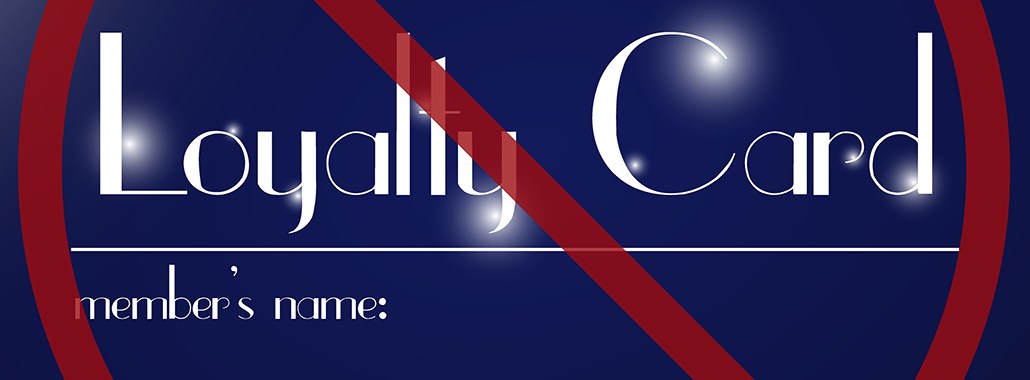Secure your place at the Digiday Publishing Summit in Vail, March 23-25

Nelson Freitas is chief strategy officer, Wunderman New York
To understand the problem with loyalty programs, your key chain can tell you everything you need to know. If it’s like most, it has five keys and 24 plastic loyalty cards. Those cards offer points, discounts or any of a range of confusing benefits. That said, four of them probably come from competing supermarkets. So much for loyalty.
Not surprisingly, most brand managers view loyalty programs as a necessary evil. Recently, a team from Wunderman and KBMG undertook a study to see how C-level executives felt about them, and the results were revealing.
Across the board, marketers felt the programs didn’t build brand loyalty or increase spending and only cater to the deal-seeking crowd, the least loyal customer segment. More than half feel they are ineffective; nearly half are dropping loyalty programs altogether.
In a healthy brand-consumer relationship, a brand doesn’t merely sell and a consumer doesn’t merely buy. They both better each other. They create a positive feedback loop where brands provide a range of utility both pre- and post-purchase. In return, customers buy products and services, while providing personal data that helps brands serve them better. This should be the new standard.
For example, Amazon reviews are terrifically helpful when you’re doing research. Nike activity trackers help you train better. In return for these useful services on a regular basis, the brands stay top of mind for their customers.
Of course, not every brand can be Nike or Amazon. But all have opportunities to provide utility and receive insight from customers. Here are a few:
Anticipate more than personalize.
For years, we’ve done the personalization thing. You open an app and search for women’s separates, and the next time you open it up, voila, more women’s separates. Today, we have the data to anticipate and that’s where the magic is. Tesla knows you’ll get bored with your car after a few months. So why not upgrade the software to keep it fresh and fun? Understanding what someone needs before they realize it can have an extraordinary effect.
Open new worlds for each other.
Our participation in our customers’ lives can’t stop at the cash register anymore. We need to remain useful outside the purchasing cycle and give them things of real value. No, we can’t all be Nike, but we can do our own version of its apps.
Build a conversation founded on transparency.
Honesty is a two-way street. If brands want consumers to share their personal information and opinions, they must do the same. We should use social media not merely to sell stuff, but as a forum for dialogue and debate. I had a client that worried about opening a Twitter account because they feared complaints. Once opened, people did complain. But their customer service team turned those complaints to its advantage. It fielded questions and dispensed helpful information. That turned haters into advocates — and improved the relationship.
Create something bigger than the two of you.
Many people today want to be part of something bigger than themselves. And most brands have a natural extension into a community, movement or social cause. Brands have a natural megaphone that can rally people and make a difference. But few have embraced this in a full-throated way to push for change.
We all have opportunities to separate the inspiring concept of loyalty from the dreary reality of loyalty programs. We can build a positive feedback loop where brands and people can better each other on an ongoing basis. It’s not about providing a card that gives people two bucks off on salad dressing. It’s about becoming an agent of change that improves customers’ lives and the world around them.
More in Marketing

Pitch deck: How ChatGPT ads are being sold to Criteo advertisers
OpenAI has the ad inventory. Criteo has relationships with advertisers. Here’s how they’re using them.

Yahoo pauses IAB membership amid a series of quiet cost-saving measures
Yahoo pulls IAB board memberships, following job cuts as PE-owner reportedly reconsiders ad tech investments.

Target looks to e-commerce, advertising investments to help grow the business
Technology is one of the most important areas in which Target will invest with the hopes of returning to profit growth.





